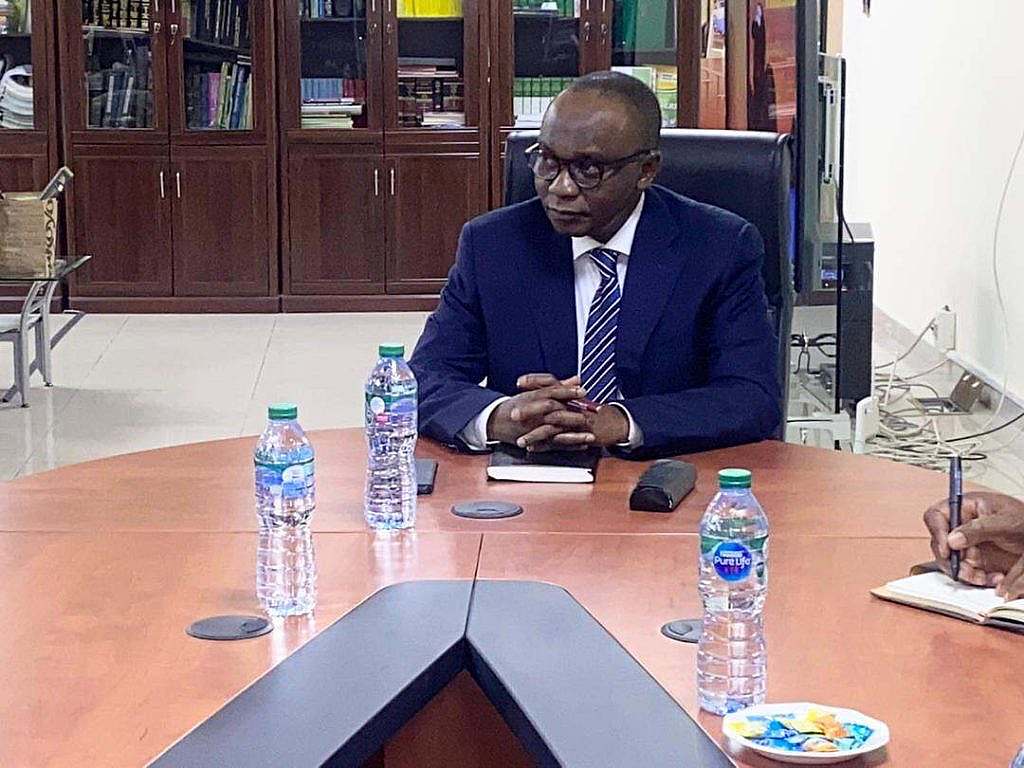The realm of business and governance has undergone significant transformation, largely driven by the adoption of modern technologies and a strong commitment to transparency. One individual who epitomized these values during his tenure as the Registrar-General, Alhaji Garba Abubakar of the Corporate Affairs Commission made a substantial impact on the institution.
The former Registrar-General, who is also the grandson of the Prime Minister of Northern Nigeria, Sir Abubakar Tafawa Balewa and whose father resigned from the prestigious Port Authority two weeks after his appointment due to a lack of a clear and proper path to stop ‘business as usual’ at that point in time, his reason was that: “he wanted to meet his Creator peacefully”, AG Abubakar inherited a record of prudence. He was distinguished by his resolute determination to challenge the conventional way of doing things. He recognized the necessity to disrupt the status quo, pushing for substantial changes to enhance efficiency and transparency.
Financial leaks and insider trading have long been issues that hinder the growth of organizations and erode trust. The former Registrar-General tackled these problems head-on. He implemented rigorous measures to seal financial leakages, ensuring that every Naira allocated to the commission was meticulously accounted for. Additionally, he introduced measures to prevent insider trading, creating a level playing field for all stakeholders.
The integrity of business records and corporate documents is paramount to the credibility of any regulatory body. Preventing tampering with files was a significant achievement during his tenure, guaranteeing the reliability and trustworthiness of the information held by the commission.
One of the most remarkable accomplishments of the former Registrar-General was the bold move towards embracing digital transformation. Recognizing the potential of modern technology, he spearheaded the commission’s journey into the digital age. This shift streamlined processes, enhanced accessibility, and reduced reliance on outdated paper-based systems.
However, the digitization process was not without its hurdles. Many staff members lacked proficiency in using computers, and there was a widespread fear of potential job losses due to the automation of certain tasks. This situation underscores the common challenge in transitioning to digital systems: the need for comprehensive training and change management to ensure that employees can adapt to new technologies.
The former Registrar-General’s dedication to accountability and transparency extended to the unearthing of criminal activities within the organization. His actions revealed connections between certain staff members and various forms of misconduct. These revelations underscore the importance of maintaining rigorous ethical standards and holding individuals accountable for their actions.
The impact of these reforms was not merely anecdotal. The involvement of law enforcement and regulatory bodies, including the Police, DSS, EFCC, ICPC, and AGIES, in validating these claims underscores the seriousness of the former Registrar-General’s commitment to accountability and the fight against corruption.
The tenure of the former Registrar-General of the Corporate Affairs Commission serves as a testament to the transformative potential of digitalization and accountability in the realms of business and governance. His initiatives to break away from traditional practices, curb financial leaks, and introduce digital innovations have left an indelible mark on the Commission, setting a benchmark for others to follow. This narrative reminds us that, in our ever-evolving world, embracing innovation and upholding accountability can lead to enduring positive change.
As we conclude, it is compelling to contemplate the potential for global institutions, such as the World Bank, to acknowledge and engage in collaborations with prudent and forward-thinking individuals like the former Registrar-General, Alhaji Garba Abubakar. His leadership and unwavering commitment to instigating change have left an indelible mark on the Corporate Affairs Commission and, indeed, the broader business environment. To further integrate into the Africa Business Platform and spearhead the much-needed transformation, visionary leadership remains an indispensable element. This narrative serves as a powerful reminder that throughout the African continent, the embrace of innovation and the upholding of accountability can pave the way for enduring positive change while simultaneously acting as a bulwark against corrupt practices in government, non-governmental organizations, and the private sector.
The former Registrar-General’s time at the helm of the Corporate Affairs Commission stands as a testament to the transformative power of digitalization and accountability in the spheres of business and governance. His efforts to depart from conventional practices, plug financial leaks, and introduce digital innovations have etched an indelible legacy within the Commission, serving as a standard for others to emulate. This narrative serves as a poignant reminder that, in our ever-changing world, embracing innovation and upholding accountability have the potential to usher in lasting positive change.
Barr. CN Okoli writes in from Lagos





